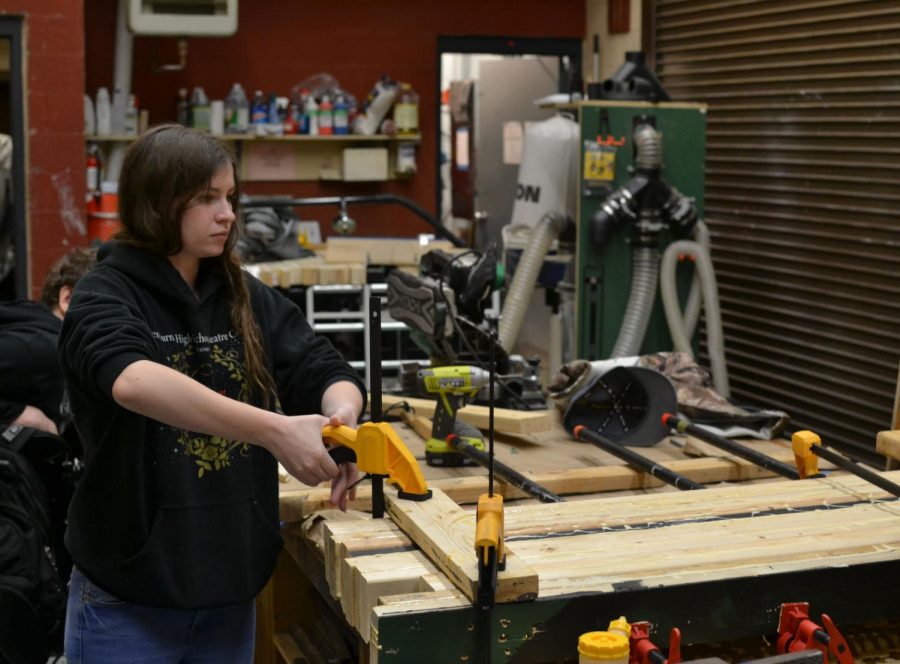Crew works backstage to make shows ‘great’
March 1, 2019
Theatre at AACC will premiere “Romeo and Juliet” on April 12, but the play production team has already started building and designing sets.
From 9:30 a.m. to 12:30 p.m. on Tuesdays and Thursdays, the play production team works to craft, carry, adjust and create set pieces, such as balconies or doors, according to the concepts of performing arts professor AnnMarie Saunders, the play’s director.
The play will showcase the difference between the worlds of Romeo and Juliet and their parents, theater professor Sean Urbantke said.
“And that is very heady,” Urbantke said. “So that’s what the designers do. They take [an idea], internalize it, think about it, sleep on it … and come to the next [set design] meeting with an idea.”
Afterward, the production crew takes on the task of building props.
Sarah Valerien, a first-year transfer studies student, works as the stage manager for “Romeo and Juliet.”
The stage manager’s job mostly involves delivering messages and sending reminders to the cast, crew and director, Valerien said.
“If the director wants something to be sent out to the cast, I tell the cast,” Valerien said. “I remind people … that ‘we have this deadline coming up.’”
Up until the show begins, Valerien’s job mainly deals with watching rehearsals and taking notes on the crew’s concerns and questions about prop placement and actors’ movements.
“That’s what I’ve always thought it was to be a stage manager,” Valerien said. “It’s troubleshooting all the problems that are happening in the moment during the show.”
When the members of the production team get their scripts, the sound and light crew figure out and brainstorm what they expect to do for it.
The members of the sound team also determine which mics go to cast and crew members who need them.
The director acts as the creative mind and the technicians work as the hands that carry out her vision, Valerien said.
“They take everything the director wants and make it a reality,” Valerien said.
While audiences may not notice the effect of color on stage, the impact of setting the mood for the scene can be felt, Logan Spates, a first-year theater student, said.
Urbantke said managing personalities in a high-stress environment for long periods close together demands knowledge of psychology.
“You are working on a show together. … How can you deal with the fact that maybe you don’t agree with what that person said … and get the job done?” Urbantke said.
Katie Laubert, a second-year theater student and the actress playing Juliet, said working backstage has made her appreciate the stage crew’s work more.
“Coming to it now … my job as an actor is extremely easy compared to what they have to do,” Laubert said. “All these hours and building the set and all this extra time.”
With all that time working and no credit from the audience, some, like Spates, said they can end up feeling underappreciated.
“We want to make the show great for everyone who sees it,” Spates said. “But at the same time you put in a lot of work and most people don’t know what you’re doing.”
“Romeo and Juliet” will open in the Robert E. Kauffman Theater on April 12.












